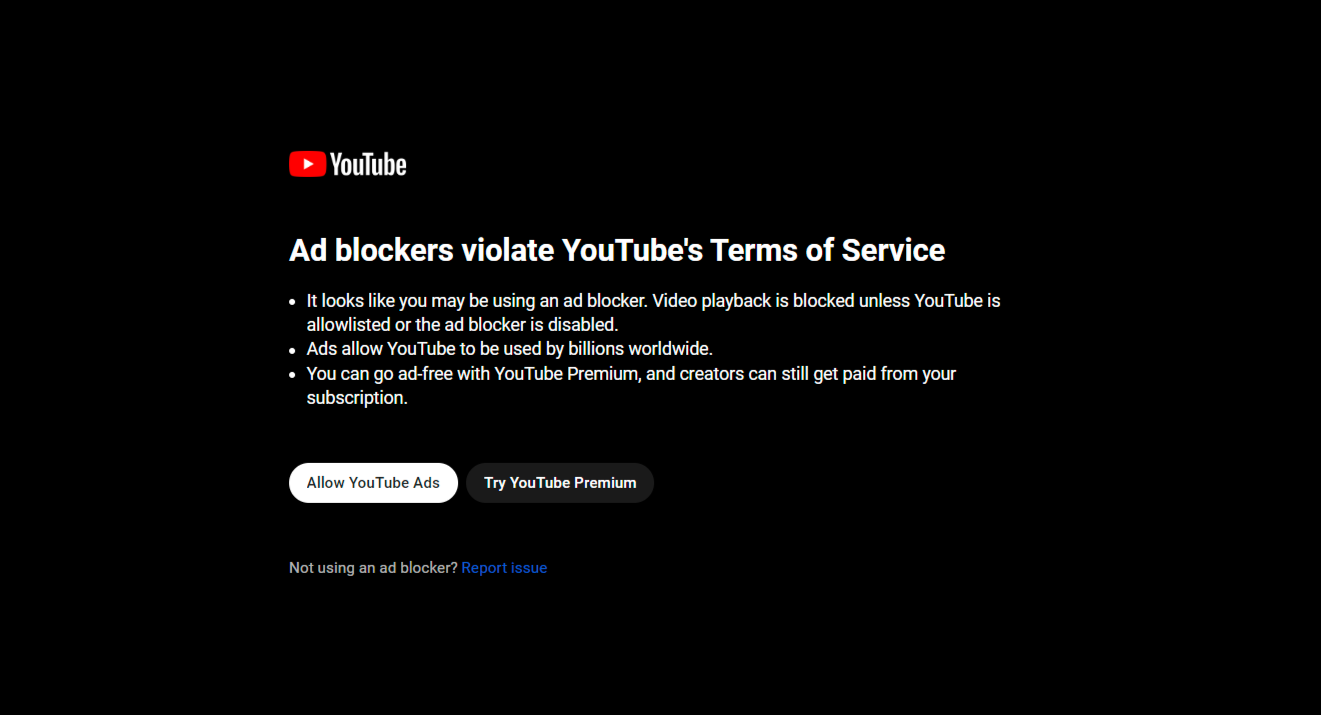-
Posts
15,450 -
Joined
-
Last visited
-
Days Won
1
Content Type
Events
Forums
Downloads
Quizzes
Gallery
Blogs
Everything posted by GammaGlobulin
-

My toilet seat cracked in-two last week: Am I too heavy?
GammaGlobulin replied to GammaGlobulin's topic in DIY Forum
But, if we burn the books, then what else will help us to to take a decent SHT upon the hopper? My Friends... Our entire world is going CRAZY, now. Fight Back, People! It may not be too late...... IF you must destroy the books, then do not burn them.... At the very LEAST, use the pages to wipe your behind. -

My toilet seat cracked in-two last week: Am I too heavy?
GammaGlobulin replied to GammaGlobulin's topic in DIY Forum
HERE is the GREATEST Problem with Bard!!!!!!!!! What a piece of SHT is Bard! Bard shirks from showing Reality. HOW MUCH IS GOOGLE SEARCH BEING CENSORED, these days? My guess is.... A LOT! FK Google, these days. Google is NO LONGER the same as it once was. Maybe we should also burn our books???? https://youtu.be/ekax1n5Wy4s https://youtu.be/FUQthEm1G3M https://youtu.be/w0PwQOr53SA These links cannot be embedded. Why not? Fahrenheit 451 Trailer https://youtu.be/w0PwQOr53SA Sickening! FK Google Burn the Books! -

My toilet seat cracked in-two last week: Am I too heavy?
GammaGlobulin replied to GammaGlobulin's topic in DIY Forum
I have nothing against them....except that..... The PuYai lack enough education to actually BE PuYai. I am talking about IGNORANCE from the Top Down.... (Once I get my USD100.00-toilet seat, I will not longer much care about this Topic, anyway.) I will focus on something else.... -

My toilet seat cracked in-two last week: Am I too heavy?
GammaGlobulin replied to GammaGlobulin's topic in DIY Forum
In China, there are many fish-pond toilets. The human waste goes directly into the pond to feed the fish, upon which humans feed. Talk about a VIRTUOUS CYCLE! -
NOT!!!!! This song of Winwood's is just TOO BEAUTIFUL not to last for.... Forever! Greatest song he ever sang.... Glad to have heard it in my lifetime..... Nice mic, too! Beautiful setting, as well. So much that is beautiful about this song.....in fact. (Nice song to listen to, also, when one is sitting on the hopper, in contemplation, as I am sure you know.)
-

My toilet seat cracked in-two last week: Am I too heavy?
GammaGlobulin replied to GammaGlobulin's topic in DIY Forum
OK. But, it's now just a matter of import duty, as I mentioned. I would gladly pay the USD66.00 for the toilet seat, which seems of good quality. However, I cannot, in good conscience, pay USD44.00 for import duty, just for a toilet seat. Anyway... Thank you very much for your reply! -

My toilet seat cracked in-two last week: Am I too heavy?
GammaGlobulin replied to GammaGlobulin's topic in DIY Forum
I will try again. And.... Thank you very much. (Sometimes, you just got to let the WD40 work for a while....IF....the WD40 gets constipated. Time and patience is important in these things.) -

My toilet seat cracked in-two last week: Am I too heavy?
GammaGlobulin replied to GammaGlobulin's topic in DIY Forum
Young Men in their Flying Machines? When I think of Bernoulli, I think of wings, actually. Rather than, just.... Taking a Simple Dump. -

My toilet seat cracked in-two last week: Am I too heavy?
GammaGlobulin replied to GammaGlobulin's topic in DIY Forum
Yes. I wish ALL hoppers were completely stainless. -

My toilet seat cracked in-two last week: Am I too heavy?
GammaGlobulin replied to GammaGlobulin's topic in DIY Forum
Sorry. I would like to order this seat. However, the import duty on this item to Thailand is just too....HIGH. I refuse to submit to being taxed for taking a crap..... Check it out! Anyone know where I can get this same Bemis hopper, locally, without paying so much Tax? Tks.... They tax you for crapping, now? -

My toilet seat cracked in-two last week: Am I too heavy?
GammaGlobulin replied to GammaGlobulin's topic in DIY Forum
Hey, Man. Pls don't Sht Me..... If you are serious that this is a dynamite toilet seat, then .... Please BM me, and I will order from Amazon, immediately. Thank you! ============= I am referring to this one: I ain't joking around here. If you say it's the best...then.... I will order now from Amazon, IF I can get free shipping to Thailand.... Thank you! -

My toilet seat cracked in-two last week: Am I too heavy?
GammaGlobulin replied to GammaGlobulin's topic in DIY Forum
IF YOU ARE SERIOUS...then..... I might splurge and buy it....!!!!!!!!!!!! USD69.00 is a pittance, for something that I will use several times per day. I will order now..... IF I can get FREE SHIPPING, and....IF....you say it is the ..... VERY BEST! Thank you! I am thankful that you read my post!!!!!!!!!!! -

My toilet seat cracked in-two last week: Am I too heavy?
GammaGlobulin replied to GammaGlobulin's topic in DIY Forum
PLEASE.....Forget about Stainless Steel! After a bit of research..... I think.... COPPER bung seats are the thing for me! Also, as we ALL know..... Copper is anti-microbial, too!!!!!!!!!!!!! If I order now...I can get free shipping, as Mr. C. recommended. And, I will be able to use this copper seat by April 29.....IF.... I can find some way to remove the screws holding in place my old lousy garbage toilet seat. -

My toilet seat cracked in-two last week: Am I too heavy?
GammaGlobulin replied to GammaGlobulin's topic in DIY Forum
Sometimes, toilet-seat designers fail to take into account Big G. Never underestimate Big G.... And, Newtons matter, for that matter..... -

My toilet seat cracked in-two last week: Am I too heavy?
GammaGlobulin replied to GammaGlobulin's topic in DIY Forum
Yes. Either a grinder....or... A hack saw, of the type used by prisoners for making jail breaks. -

My toilet seat cracked in-two last week: Am I too heavy?
GammaGlobulin replied to GammaGlobulin's topic in DIY Forum
WD40.... I have already tried this. But... Thank you, Sir. Good advice, usually. -

My toilet seat cracked in-two last week: Am I too heavy?
GammaGlobulin replied to GammaGlobulin's topic in DIY Forum
IMHO: A stainless steel seat and seat cover would be far better for use in Thailand. Why? It would never break, and it would be cooler to sit upon during the Hot Season in Thailand. Anyone know where I can find some stainless steel throne seats???? -

My toilet seat cracked in-two last week: Am I too heavy?
GammaGlobulin replied to GammaGlobulin's topic in DIY Forum
I have been searching for some STAINLESS STEEL toilet seat, but they are not available. I think I might buy this one. Because, I prefer to buy a commercial toilet seat which will never break...and....one which... I can take with me as I move from place to place. A toilet seat is like a pillow.... In that, you need one that feels comfortable to you. This is why I will now buy a high quality seat which will move with me, from one guesthouse to the next, to make my movements more enjoyable.... -

My toilet seat cracked in-two last week: Am I too heavy?
GammaGlobulin replied to GammaGlobulin's topic in DIY Forum
As I mentioned: This seat is old. This seat, for some unknown reason, uses metal screws to hold the seat in place. This is an abomination, and utter supidity. Where there is water, there is sure to be corrosion. Therefore, of course, manufacturers have now chosen to use plastic screws, which work well, and which do not corrode, and which are very easily removable. -

My toilet seat cracked in-two last week: Am I too heavy?
GammaGlobulin replied to GammaGlobulin's topic in DIY Forum
Of course, I know what some Landlords might say: "Farang are too heavy for Thailand." -

My toilet seat cracked in-two last week: Am I too heavy?
GammaGlobulin replied to GammaGlobulin's topic in DIY Forum
It's so easy to get one's balls caught when standing up. -
I know..... How can a toilet seat crack in half? This has never happened to me before. Could be dangerous, even, if a brittle plastic shard from a cracked toilet seat cut my privates. Is this just a case of cheap plastics OF Yore?; about 35 years ago? Or, are the tiny toilet seats designed for Tiny Thais just poorly designed, now that we know that Thais are becoming heavier, by the year? FYI: I have seen PLENTY of Thais who are double my weight. And so, I think that toilet seats should be designed to withstand at least 200 Kilos to accommodate the commodes of Heavy Thais. Obviously, this is a perfect case of inferior plastics being used 35 years ago. NOW: Here is my problem.... The lousy garbage toilet seat is held in place by some metal screws, instead of what is now used...the plastic screws and bolts, which are easy to remove. And, now, even though I have a new toilet-seat replacement, I cannot remove the old lousy garbage toilet seat. I have unscrewed the right-side bolt, but the left-side bolt is completely locked, frozen, and corroded. This is very unnerving. And, there are even Blogs discussing the stupidity of using metal screws to hold the toilet seat in place. As you know, where there is water, then there is bound to be corrosion. So....HOW do I remove these lousy garbage screws holding the garbage plastic toilet seat in place. If I cannot remove them.... Then, I cannot replace the toilet seat, and sit upon it. Here is what I mean: I have no drill, at the moment. If I HAD a drill, then I would drill down through the head of the screw,..... OBVIOUSLY.... Tks for any advice. I do not want to take a sledge to the toilet. I am trying to not waste money, by destroying the toilet with.... ONE FELL SWOOP of the sledge.....
-
Dear Friends: How much of your precious life is wasted, staring dazed, at YouTube garbage? Even an hour is too much. During recent years, I have been hoping that some....ENTITY...would put an end to my Very Bad.... YouTube habit. The thing is: a. I do not need YouTube but... b. YouTube needs me. I will no longer waste the remaining days, hours, years of my life watching YouTube, which has become our new Boob Tube. Spending time on YT can become an insidious habit which robs us of the time we have on this planet. Therefore, we should be thankful to YouTube when we get a message like this: I had a life before YouTube. It was a better life, too. Therefore, my only wish, at this point, is that YT will block me, for LIFE. So that, I can recover my better life that I once had WITHOUT YouTube, the Boob Tube. Regards, Gamma Note: Still, I am sure that I will miss all those CAT videos. Pyewacket, especially. Note2: Who is Pyewacket? Love this cat! HATE YT, though. I like JT, of course.

















